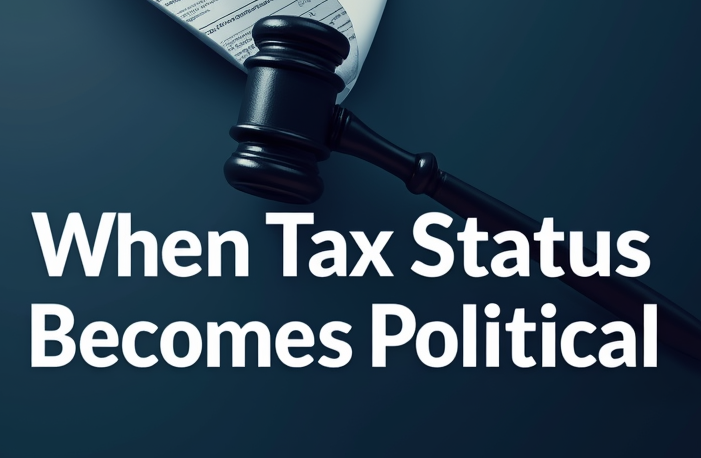Legislative Round-Up | December 2020
Included in this Round-Up
- The Lame Duck Session of Congress
- National Privacy Legislation
- Universal Charitable Deduction
- Charitable Deductibility Concerns
- IRA Charitable Rollover
- USPS Postal Regulatory Update
- YOUR Donor’s Privacy – action needed
- Capitol Hill Day
- Congressional Spotlight: Senator Joe Manchin (D-WV)
The Lame Duck Session Draws to a Close
Here we go again, another wild end to a lame duck session of Congress. Not surprisingly, it’s still uncertain when Congress will end its work and adjourn for the year. The current stop-gap funding measure funds all federal agencies through midnight this coming Friday, December 18th. And there’s talk that it may not be until a date even closer to Christmas before Congress finally “calls it quits” for 2020.
There are two mega issues in Congress right now:
- Limiting legal liability for organizations—big and small, for-profit and nonprofit—from lawsuits filed by employees who might sue their employers for having caught the coronavirus. The legislation is being championed by Senate Republican Majority Leader Mitch McConnell (R-KY).
- Appropriating monies for state and local governments, many of which are out of money and facing the challenge of laying off many of their employees. In fact, many have already laid off quite a few of their employees. This legislation is strongly supported by House Speaker Nancy Pelosi (D-CA) and Senate Democratic Leader Chuck Schumer (D-NY).
No one knows if these two issues will be resolved before Congress adjourns for the year, but the presence of these two issues has halted the legislative process for other issues.
Now for the issues which most directly impact nonprofit work…
National Privacy Legislation
Nothing is expected to happen in terms of national privacy legislation in these final days of the 2020 legislative session.
However, there has been an interesting development as we head into 2021: Congresswoman Suzan DelBene (D-WA), who has sponsored a very thoughtful national privacy bill, with 34 cosponsors, was last week chosen to chair of the House New Democrats Caucus, a group of 95 moderate House Democrats.
The DelBene privacy bill has several important (and very positive) provisions:
- A clear federal preemption of current and future state privacy laws;
- A requirement that any litigation relative to the legislation must go to federal court, rather than state courts, thus, ensuring more uniform national enforcement; and
- And it has NO private right of action, which, if included, could lead to numerous lawsuits being filed against data companies.
What this means for nonprofits: Very good news.
We want a national privacy law (to avoid patchwork state legislation), and the DelBene bill is very strong. With her new position, Congresswoman DelBene will have an important platform to promote this legislation.
What’s next?:
The Nonprofit Alliance works to support passage of Congresswoman DelBene’s bill.
Universal Charitable Deduction
The $300 Universal Charitable Deduction for 2020 is in statute.
In September, the Senate considered the Republican “slimmed down” Covid aid package, which included a provision raising the cap for 2020 to $600 for single taxpayers and $1,200 for married couples filing jointly. While the Senate Republican package failed to receive the necessary 60 votes to proceed toward consideration, these higher cap levels are now part of the legislative history of this issue – a real plus as we move forward into 2021.
What this means for nonprofits: Very good news!
The 88% of taxpayers who do not itemize will now be able to claim up to $300 in donations to charitable organizations as a deduction on their 2020 tax return.
What’s next?:
The challenge as we move into 2021 will be to make the Universal Charitable Deduction provision permanent and raise its $300 cap.
A Storm Cloud on the Horizon on Charitable Deductibility
The idea of a limit on overall deductibility first surfaced during the early Obama Administration as an item that would limit deductions for the wealthy and raise revenue for the Treasury.
The 28% overall limitation was proposed, meaning even if you’re in a tax bracket higher than 28% (currently the top bracket is 37%), you would be able to deduct only 28% on any deduction, be it for charitible giving or any other type of deduction. Fortunately, the proposal gained no traction or “legislative legs” in either of the tax writing committees, House Ways & Means or Senate Finance, and was never enacted.
Now, it appears President-elect Biden is again considering proposing the 28% cap on deductibility.
What this means for nonprofits: Potential bad news.
If enacted, this would reduce a significant tax incentive for making donations and thus be expected to reduce charitable giving. The slogan of the nonprofit sector against the original Obama proposal was “It’s not a loop hole, but a life line.”
What’s next?:
The Nonprofit Alliance will be working with our friends in the House and the Senate to make sure this limitation on deductibility does NOT gain traction.
Expanding the IRA Charitable Rollover
As previously reported, the House Ways & Means Committee’s Chairman Richie Neal (D-MA) and the Committee’s Ranking Republican Kevin Brady (R-TX) announced their “Retirement Tax Provisions Package,” which included a provision to raise the current IRA Charitable Rollover limit from $100,000 to $130,000 on the amount an individual can contribute annually to an IRA Charitable Rollover, starting at age 70 1/2.
What this means for nonprofits: Good News!
Increasing the limit means more money being moved towards supporting the work of nonprofits. That this proposal comes from the Chair of the Committee is a very good sign.
Unfortunately, the House package did NOT include a provision we sought, which would lower the age of eligibility from 70 1/2 to 65 for the establishment of an IRA Charitable Rollover. Specifically, the provision we sought would allow people between age 65 and 70 1/2 to make a one-time payment of up to $100,000 to establish an IRA Charitable Rollover.
What this means for nonprofits: Not yet, keep trying.
With 10,000 baby boomers turning 65 each day, and a number of them with large IRAs, this could be an important measure to increase contributions to our sector.
What’s next?:
The Senate Finance Committee will be releasing its Retirement Tax Provisions package early next year and we feel confident the Charitable Rollover increase from $100,000 to $130,000 will be included in the package. But the likelihood for lowering the age of eligibility to 65 from 70 1/2 is, at this point, hard to calibrate.
In 2021,TNPA will be working hard to get an expansion of the IRA Charitable Rollover enacted into law.
USPS Postal Regulatory Commission
After a 10-year review of USPS ratemaking, the Postal Regulatory Commission released its “final rule” on November 30. This rule will permit USPS to increase rates well beyond the current limits set in the Postal Accountability and Enhancement Act of 2006 that contained a ceiling on annual increases based on the Consumer Price Index (CPI).
What this means for nonprofits: Not good.
This opens the door for a hefty rate increase on top of the wide-spread economic distress (especially acute for many nonprofits) from the Covid-19 pandemic. Unhappily, energetic letter-writing from members of The Nonprofit Alliance early this year (see Leg Roundup of Feb 6) warning of dire consequences to our fundraising and to our missions went unheeded.
The PRC had previously authorized increases for 2021 in accord with the law’s provision for an annual CPI-limited increase. These previously-authorized increases average a bit less than 2% over existing rates and will take effect January 24 (see details in Nov 17 Legislative Roundup).
The rationale for the new PRC-authorized scheme is formulaic and complex and will be on top of the New Year’s increase.
Courtesy of the PRC, USPS now has the authority to raise rates as soon as the rule becomes legally final and other implementation protocols are observed.
Translation: USPS is expected to use its authority fully and new rate increases could be here as early as mid-summer. First Class Mail and Marketing Mail Letters could go up as much as 5.6%. Periodicals and Marketing Mail Flats could take a hit of 7.6%.
What’s next?:
First, The Nonprofit Alliance has already participated in legal filings which were predicates for upcoming law suits. Notably, the Alliance of Nonprofit Mailers, in concert with other mailing organizations, will soon be in court contesting the PRC’s authority to raise rates above the law’s CPI cap.
If such an increase were “against the law,” it would be logical to hope a court would be willing to prevent it from happening and the legal team will ask for an injunction to halt the increase. But courts are generally loathe to interdict an agency’s act, so even if mailers were to win in court, it could be a long process and well after the expected mid-summer increase.
Next, The Nonprofit Alliance members are writing, communicating, and being heard by our elected officials in Washington. Our constituent letters explaining threats to our work are read, usually with care, and often acted upon. We are working on an approach which sould provide us relief – sooner rather than later. It will likely take more letters and communication from members of TNPA. You will hear much more from us soon!
Biden Transition and USPS
Last week TNPA’s VP Government Affairs Mark Micali participated in a small Zoom Call – with just four participants – with the head of the Biden Administration Transition Team for postal issues, Ron Stroman. We look forward to more conversations and collaboartions with the administration.
US Supreme Court Likely to Hear Case on YOUR Donor’s Privacy
Four or five years ago, the two states of New York and California began requiring the submission of completely executed Schedules B to Form 990 when registering to solicit in the state. In effect, this means that to be permitted to raise funds in those states, organizations must share the name, address, and donation amount for every donor giving $5000 or more with the charity regulators (that’s the Attorney General in each of these states).
What this means for nonprofits: Problematic.
This is problematic for protecting the privacy of donors and at the time it was enacted, there was quite a furor.
A number of organizations sued the California Attorney General in federal district court on constitutional grounds – with mixed results. In two cases, Thomas More Law Center v. Becerra and Americans for Prosperity Foundation v. Becerra, the nonprofit litigants continued by filing petitions asking the US Supreme Court to take up their appeals.
In deciding whether or not to take the case, the US Supreme Court asked the US Department of Justice (DOJ) to offer its views. The US DOJ returned its brief earlier this month offering a view that aligns with the primary concerns raised by the nonprofits. Court watchers say this greatly increases the chances the case will be heard, perhaps as soon as this current term of the Supreme Court.
What’s next?:
The Nonprofit Alliance needs to hear from you and your organization. How important is the privacy of your major donors to you? Is this an issue that is you care about? Is this worthy of TNPA’s energy and effort?
Please reach out to us with the view of your organization. If you don’t know, please ask around, perhaps the major gifts officers or Director of Development have an opinion.
TNPA’s support could include in-the-wings help in crafting an amicus brief when the case moves to the Supreme Court. And it would likely eventually include an invitation and recommendation to all TNPA members to sign on in their own names to an approved amicus brief. Recent history has shown that a long, nonpartisan list of nonprofits recognizable to the Court can have an impact.
If it came down to signing on to an amicus brief, would your organization be on board?
We will, of course, supply you with the DOJ brief and other background material. We will also be happy to engage anyone on your staff with a one-to-one conversation to answer any questions and flesh out the issues.
It’s not too soon to begin your own vetting process if you believe your organization should – and could – agree to sign on. Of course, this would all depend on seeing the actual document, but right now, there is not yet a court case, and not yet a document. This is a time to take the temperature and make some decisions about TNPA’s role.
Please email Bob Tigner with your questions and input about where your organization stands.
Capitol Hill Day
January 13, 2021, 8am-5pm ET
On Hill Day, nonprofit leaders from across the country will join (virtually) Vice President Government Affairs of The Nonprofit Alliance, Mark Micali, to meet members of Congress and discuss our issues.
Interested? Curious? Hill Day is open to you, no matter your lobbying experience or depth of knowledge. Your presence shows that nonprofits care. Mark will brief you in advance. Email Mark Micali with questions or Register for Hill Day here.
Congressional Spotlight:
Senator Joe Manchin (D-WV)
 Every month, The Nonprofit Alliance will introduce you to one member of Congress who is a leader on legislative matters important to our community, with representation from both parties.
Every month, The Nonprofit Alliance will introduce you to one member of Congress who is a leader on legislative matters important to our community, with representation from both parties.
The Nonprofit Alliance has worked closely with Senator Joe Manchin of West Virginia.
The Senator was born and raised in the small coal mining town of Farmington, WV, learning the values of family, common sense, fairness and hard work.
Throughout his life, the Senator has had a strong belief in public service and an unflagging passion and desire to help those less fortunate. The Senator has had a long career in public service; first serving in the West Virginia House of Delegates, later the West Virginia Senate, and then in 2000 was elected as West Virginia’s Secretary of State. In 2004, he was elected West Virginia’s 34th Governor, and then in 2010 was elected to the US Senate to fill the seat left vacant by the late Senator Robert C. Byrd. Senator Manchin was then reelected to the Senate in 2012, and again in 2018. Senator Manchin is a political moderate, who throughout his career has brought opposing sides together to help craft common sense solutions to difficult challenges.
The Senator serves as the Ranking Member of the Senate Energy and Natural Resources Committee and on the Senate Appropriations Committee, the Senate Armed Services Committee, and the Senate Veterans Affairs Committee. In fact, helping veterans has been a special focus of Senator Manchin and he has been working hard toward passage of S. 711, the CARE for Reservists Act. This legislation would improve outpatient care for better mental health services for veterans, as well as members of the National Guard and Reserves.
Senator Manchin donated the salary he received during a previous government shutdown to Save the Children in West Virginia. Save the Children has started several core programs across West Virginia to focus on early steps to school success through social and emotional development, literacy and reading skills, and healthy choice programs increasing access to regular physical activity and healthy lifestyles.
The Nonprofit Alliance looks forward to continuing to work closely with Senator Manchin.



